A decade of hate: How South Dakota's gender-affirming care ban affects these trans youth
Editor’s note: This is the fourth article in a series of six exploring South Dakota’s last decade of anti-LGBTQ+ legislation, “A decade of hate.” Read the first, second, third, fifth and sixth articles here.
For the last 10 years, LGBTQ+ South Dakotans have been targeted by legislation from elected officials that would bar them from adopting children, from playing on the sports teams that match their gender, from seeking gender-affirming care at a young age, and more.
While not all of the bills proposed passed in the Legislature, each has created lasting ripple effects within the community. The most recent of these bills, HB 1080, which went into effect July 1, has left families questioning whether they belong in the state at all.
The law, which bans gender-affirming care for minors, is the latest to be signed in what members of the LGBTQ+ community have called a decade of hate in South Dakota.
Multiple families who sought this type of care in South Dakota are now considering seeking it elsewhere, or leaving the state completely. Here’s a closer look at their stories.
‘We’re just trying to live our best lives’
South Dakota’s new law affects Willow Soto, a 13-year-old girl who lives in Luverne, Minnesota, but who attends school at the ACE Academy in Sioux Falls and gets her healthcare in Sioux Falls.
Willow has always been Willow, her mom Carrie Soto said. Willow was able to verbalize those feelings two years ago when she wanted to get her ears pierced and wear skirts to school.
At the time, Carrie didn’t realize her family could seek care closer to home, so they made the drive to a children’s clinic in the Twin Cities, where they worked with a comprehensive team of medical providers to get Willow the care she needed.
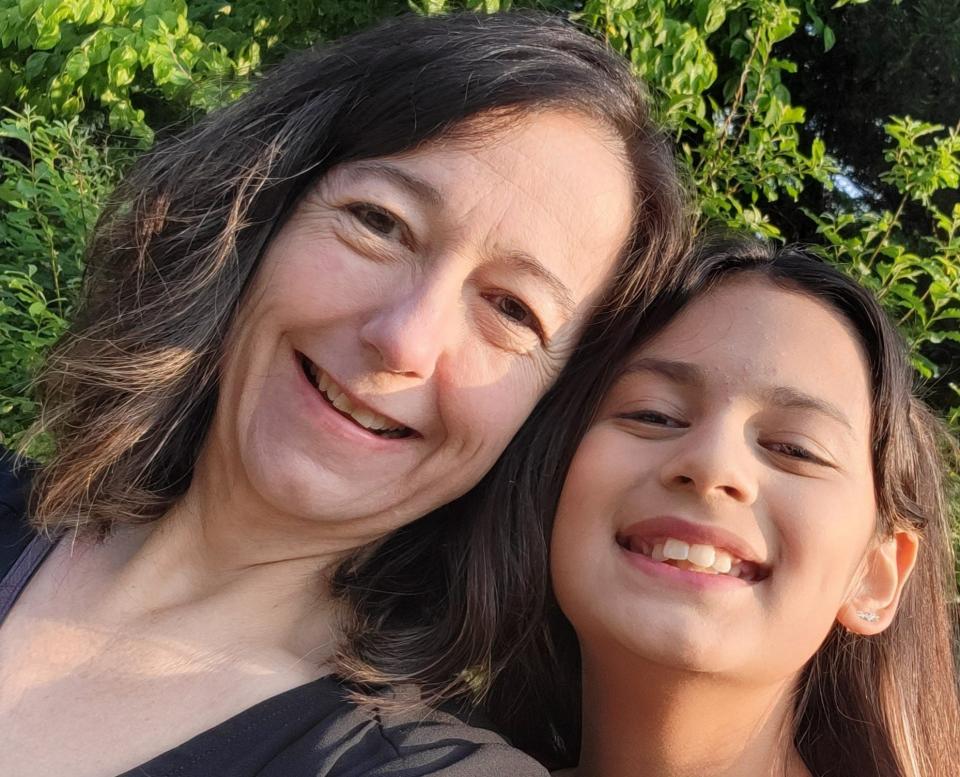
After attending a Sanford Gender Identity Summit in fall 2021, Carrie said she realized she could get care for her daughter closer to home and they started going to a doctor at Sanford in Sioux Falls for endocrinology, she said. Willow was able to start puberty blockers last fall.
However, because of the new law, the Sotos are planning to transition care away from where they attend school and work back to the Twin Cities, several hours away from their home in Luverne.
Carrie said she has tried to shield her daughter from the anti-trans attacks in state legislatures across the U.S. because she wants her kid to be a kid instead of worrying about how her family will pay for her healthcare, where they’ll go or what doctor she needs to see.
“It’s frustrating that South Dakota is taking that right away from parents (and) saying that we can’t make that decision for our own children,” Carrie said.

Willow wants the politicians who drafted and passed HB 1080 to know that she’s just like any other kid. She loves playing games like Roblox, learning more about fashion and listening to music. She’s excited for her first concert: Melanie Martinez in Minneapolis this month.
“We’re just trying to live our best lives, and they’re trying to tear it all apart,” Willow said. “I’m just a normal teenage girl. I like to hang out with my friends and be a goofball.”
‘We aren’t defined by the pain’
You may know Susan Williams, executive director and founder of the Transformation Project and the Transformation Project Advocacy Network. She founded the nonprofits because she didn’t have many resources when her child, Wyatt, confided in her that he was her son at 10 years old.
Wyatt, who is sharing his story more publicly for the first time, wrote his parents a single-spaced, eight-page-long letter six years ago letting them know he felt miserable, but that he also wanted to be his true self.
“It was a hard decision to write that letter, but it was the best decision I’ve ever made,” Wyatt told the Argus Leader. “I was sort of just sitting there for a few months waiting for my parents to catch up with the idea that I am their son, rather than waiting for a label. I didn’t know anything about being trans or pronouns.”
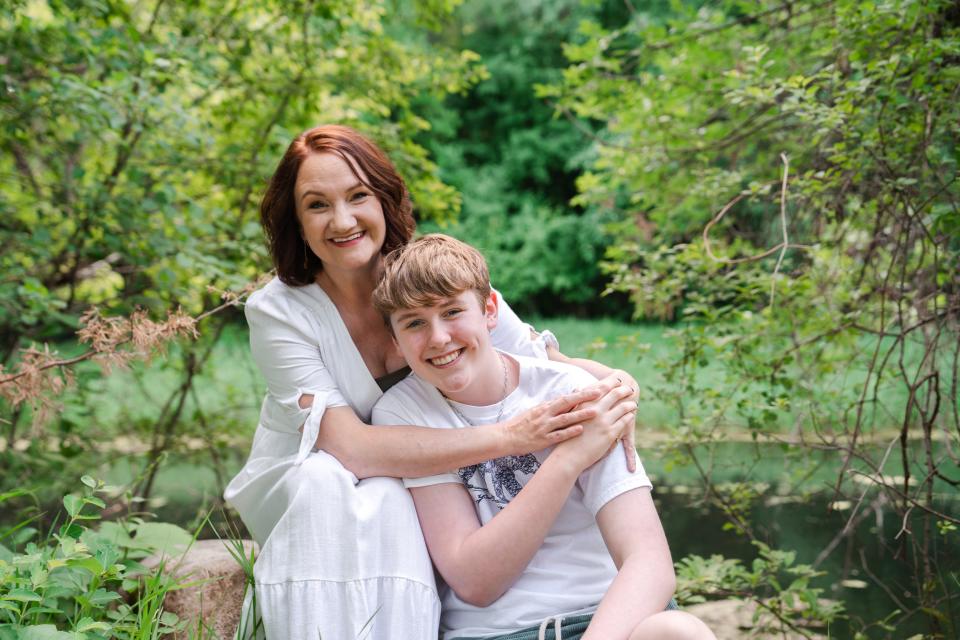
After Susan started researching more about what that meant for her son and her family, Wyatt said his mom introduced him to the fact that the trans community exists.
“It was very life-changing for me to have that, to have a community and to have a group of people, even though they weren’t near me, to have those people and know I wasn’t alone,” he said.
The connection was a shift that made Wyatt go from a sad kid to someone much happier, he said.
In the early days of the Transformation Project, Susan kept Wyatt out of the spotlight to keep him safe, even when Wyatt sometimes felt like he wanted his voice to be heard. It wasn’t until he was older that he realized how unsafe speaking out and living in South Dakota was, he said.
Because of this, Wyatt has felt more compelled to share his story and speak out about how pride is still a protest and how laws are affecting himself and others across the U.S. Wyatt gave a speech capping off the Sioux Falls Pride celebration June 10.
“I know firsthand how difficult it is to be queer in South Dakota, yet despite how exhausting it may be, we do not have to give up the fighting,” he said at Sioux Falls Pride. “We aren’t defined by the pain manufactured by hateful people and organizations, especially in South Dakota. We must realize that queer existence is beautiful, and it must not be silenced. Never let them reduce our existence. We are multitudinous, and we won’t disappear.”
Both Wyatt and Willow attended a trans protest prom in Washington D.C. this May. Wyatt was featured in Vogue in near-silhouette wearing his suit on the capitol lawn at the prom, and Willow was featured in the ABC documentary “The Freedom to Exist.” Wyatt’s story has also been featured with some protections for his identity in the Washington Post and in the Guardian.
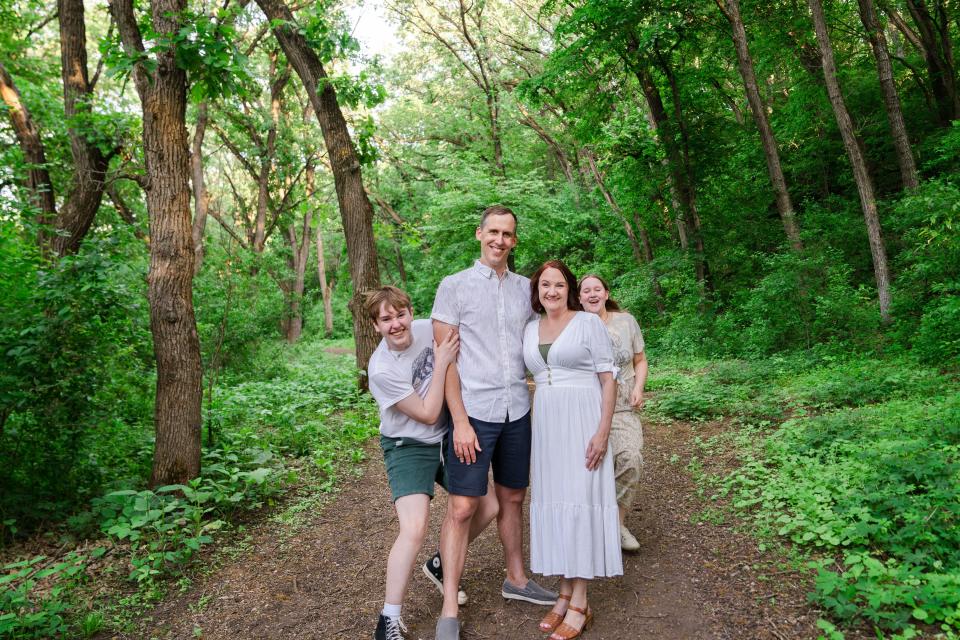
With the attacks on trans people that have continued over the years in South Dakota, Wyatt said he’s considering leaving the state after he graduates from high school.
“Being in this state is not safe,” he told the Argus Leader. “Since the age of 10, I’ve been wanting to move away simply because of the fear that’s created, and the uncertainty of my future. Moving to a different state would help me a lot. It’s sad that I have to think about that.”
“I love South Dakota, but the environment that’s being cultivated here… there’s people supporting ideologies that harm me,” he added.
‘What right do they have to tell me what I can do?’
Elliott Morehead, 17, is a Lincoln High School student and director of South Dakota Youth Activism. He testified against HB 1080 this winter.
In a packed committee room, he told lawmakers how it took him more than six months to get a letter from his therapist approving him for hormone replacement therapy. That letter allowed him to schedule an appointment far in advance before he could have any sort of treatment done.
“I was there because this bill affects kids like me — trans kids,” he said. “I was the only one in the room that had that experience directly affected by this bill. I needed them to hear my experience, and also clear up the fact that there aren’t doctors saying, ‘Here you go, hormone therapy. There you go, kid.’ Like, that’s not how it works. I’ve had a long process that I’ve been very impatient for.”
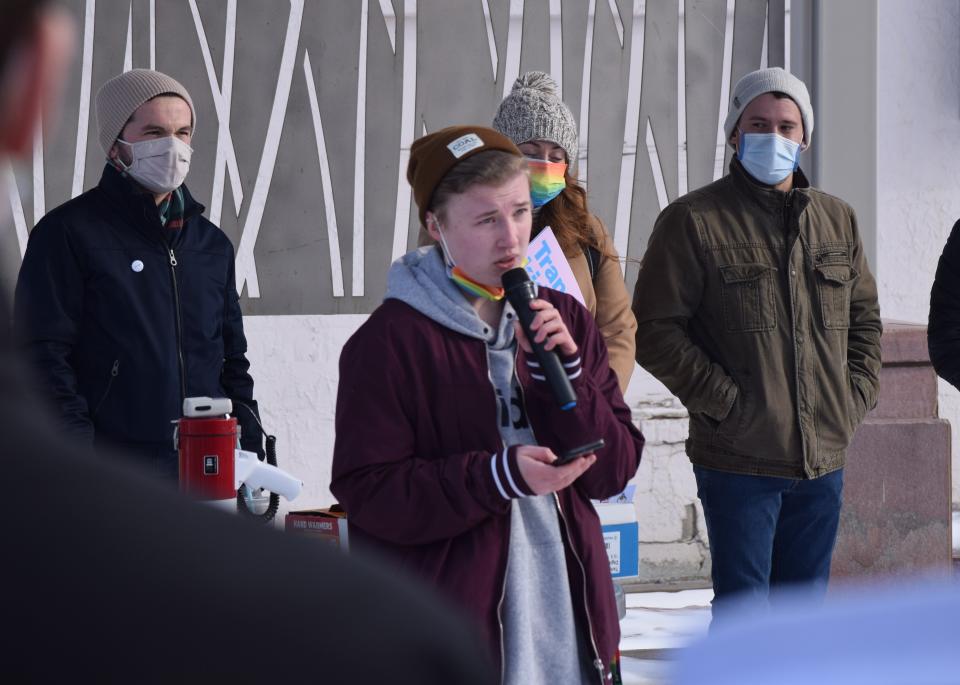
Morehead said he will have to go out of the state for care in the future, likely to Minnesota. Testifying in Pierre made Morehead question why people in power were making medical decisions for him.
“What right do they have to tell me what I can do, and what’s best for me?” he questioned.
As he prepares for his senior year, he said what would make him happiest is walking down the stage on graduation day “as the person I see myself as, not the dysphoria that I deal with every day.”
When he’s out organizing with South Dakota Youth Activism, he said he puts on a strong, “I got this” look and appears as if nothing can break him down.
“To be totally honest, it can really suck living in a real conservative state when you know there will be plenty of people to harass you or not give you the time of day because of who you are,” he said. “All these bills tell me that as a trans kid, (I) don’t belong. I already deal with disorders like depression and anxiety, so this on top of it does quite the opposite of helping me thrive.”
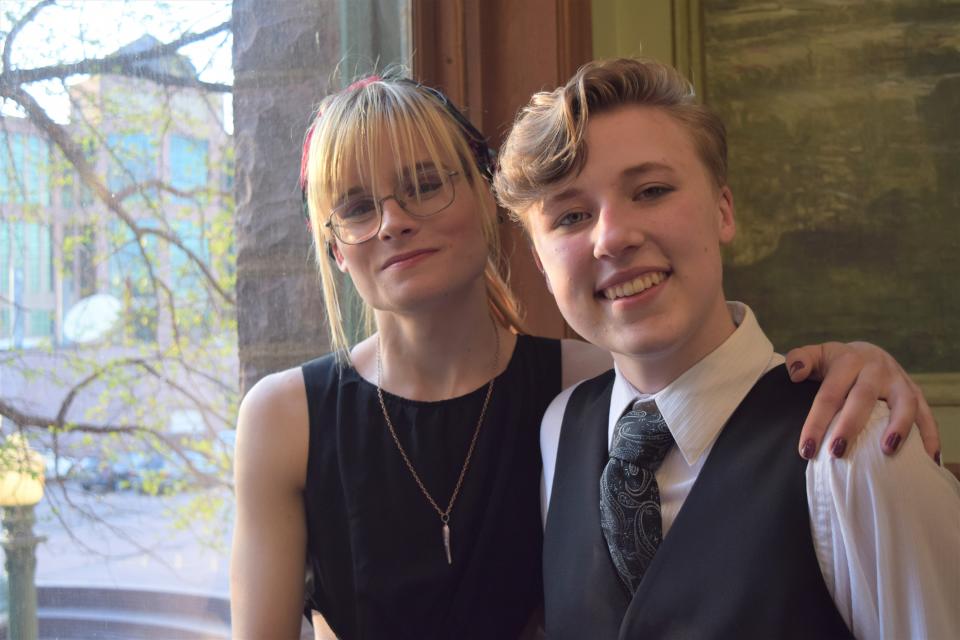
Despite the anti-trans political atmosphere in South Dakota, Morehead said he’s still proud to be in his home state because of his new activist group and causes like the Transformation Project and Sioux Falls Pride. He might look at attending college in a different state, but said he wants to stay rooted in South Dakota after that.
“I’m so passionate about this project, making a difference here and getting young people involved, because I know that we have a voice,” he said. “I just can’t bear to see that disappear. Local work in rural conservative areas and representing who I am in these areas is so important.”
This article originally appeared on Sioux Falls Argus Leader: South Dakota transgender youth speak out against HB 1080

